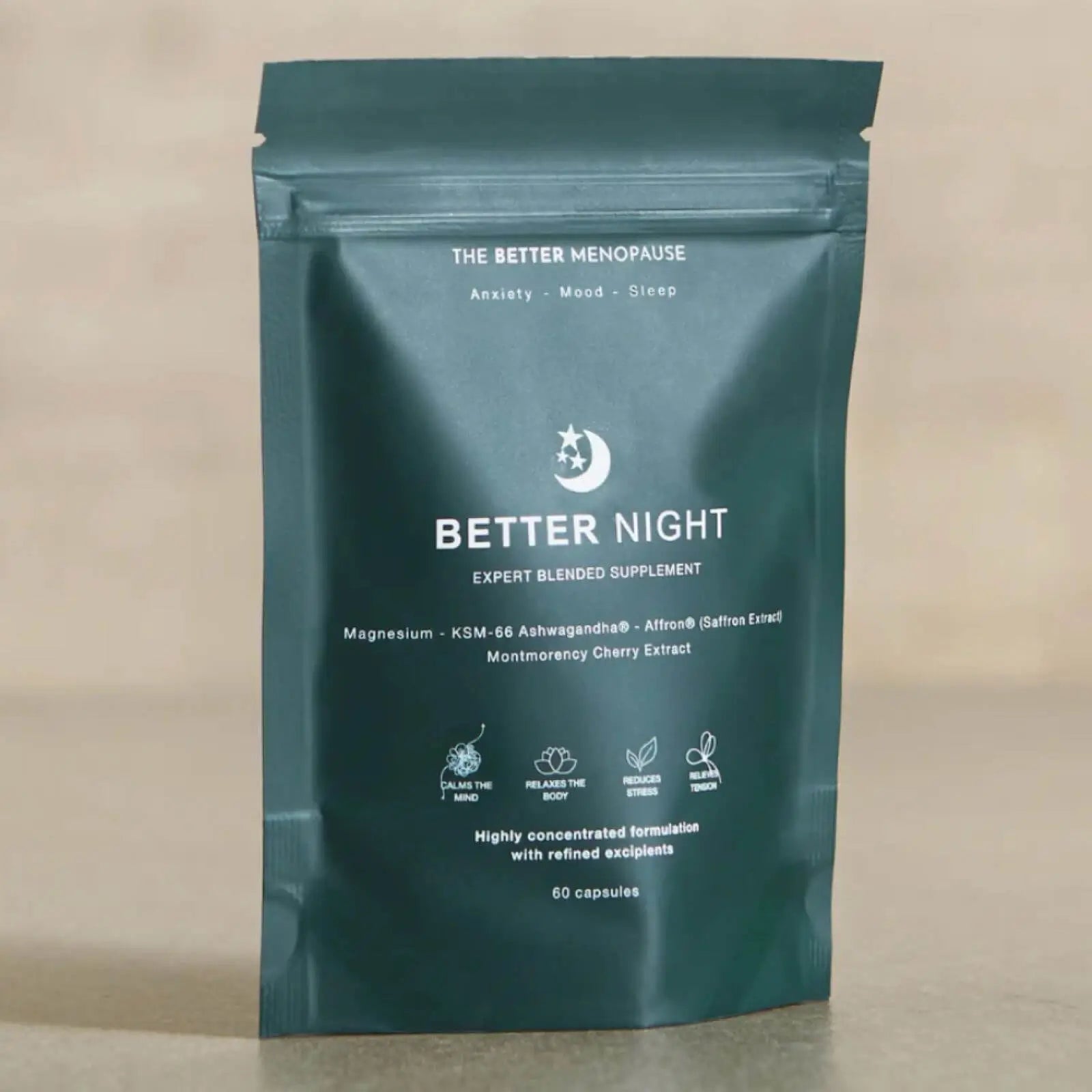
How our gut processes oestrogen and why this matters so much in menopause
What is the Estrobolome?
In this journal we explore some of the science behind what is happening in our incredible gut and how hormone changes can lead to disruption in our gut health.
The estrobolome (pronounced istr-OBB-uh-lome) is a collection of bacteria in the gut that plays a key role in processing and modulating oestrogen. It is the gut-hormone axis that influences the production and amount of oestrogen circulating in the body, which in turn can impact weight, libido and mood and protect our heart, brain and vaginal health.
During the perimenopause the gut microbiome gets disrupted by fluctuating oestrogen levels and this disruption to the composition of bacteria in the estrobolome is directly associated with common menopausal symptoms, such as: increased incidence of IBS, bloating, hot flushes, weight gain, anxiety, brain fog, low energy, mood swings, loss of libido, vaginal pain and dryness, urinary tract infections, and poor sleep. By promoting gut health, which supports a healthy estrobolome, these unwanted symptoms of perimenopause and menopause can be significantly alleviated.
Why is it important?
Higher levels of oestrogen enable enzymes in the gut to work efficiently to support digestive health. But during perimenopause, oestrogen levels fluctuate sharply, which reduces the production of these digestive enzymes and the diversity of bacteria in the estrobolome. So, for menopausal women, the restoration of the estrobolome is central to their microbiome health.
Microbes in the estrobolome produce beta-glucuronidase, an enzyme that changes oestrogens into their active form so that we can use them again. Beta-glucuronidase activity produces active, unbound oestrogen that is capable of binding to oestrogen receptors and influencing oestrogen-dependent processes throughout our body.
Oestrogen is a 'goldilocks' hormone and it needs to be 'just right' for optimum health. When the gut microbiome is healthy, the estrobolome produces just the right amount of beta-glucuronidase to maintain oestrogen homeostasis. However, when gut dysbiosis is present, beta-glucuronidase activity may be altered. This produces either a deficiency or an excess of free oestrogen. In the excess form it can lead to increased risk of weight gain, cardiovascular, brain & metabolic illness.
What can we do to help support our estrobolome and overall gut health?
- Feed Your Gut with Fibre: The beneficial bacteria in our gut thrive on fibre from plant-based foods, particularly those like onions, garlic, grains, beans, jerusalem artichokes, leeks, bananas, flaxseeds and raspberries. Consuming these foods in their raw state provides the greatest benefits. If you are intolerant to pulses and grains, focus on including 2-3 vegetables in every meal. Fibre also helps bulk up stools, facilitating daily cleansing. Incorporate at least four different vegetables into your daily meals.
- Include Fermented Foods: Regularly consuming fermented foods such as sauerkraut, kimchi, miso, pickles, natural yoghurt, or kefir can promote a balanced microbiome by providing additional beneficial bacteria
- Overnight fasting - allows our gut to rest and repair and stimulates our fat burning hormones which helps control hormonal weight gain.
- Probiotics - Take a daily probiotic to directly support the microbiome to protect against the oestrogen fluctuations and reduce inflammation.
As well as dietary changes incorporating stress reducing activities and movement into your daily routine will all play a role in improving our overall gut health and in giving you a better menopause.


